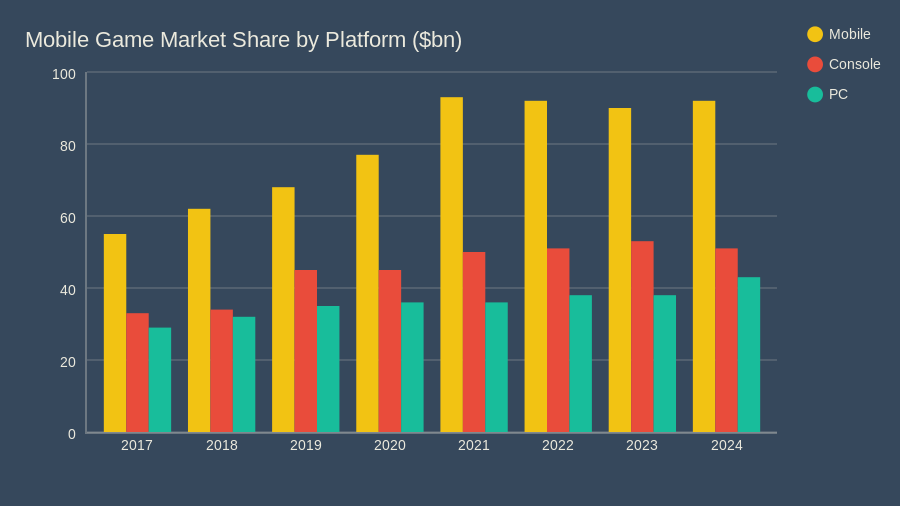Dasiwang: Your Gateway to Trending Insights
Stay updated with the latest news, trends, and insights across various topics.
User-Generated Gaming Markets: Where Players Become Creators and Profits Flourish
Discover how player creativity is reshaping gaming markets and driving profits. Join the revolution where gamers become creators!
Exploring the Rise of User-Generated Gaming Markets: A New Era for Gamers
The landscape of gaming has undergone a profound transformation with the rise of user-generated gaming markets. Unlike traditional gaming models, where developers dictate the terms and content, these new platforms empower users to create, share, and monetize their games. This shift promotes innovation and creativity, leading to diverse gaming experiences that cater to niche audiences. Platforms like Roblox and itch.io have exemplified this trend by allowing players to build their own worlds and share them with a global audience. As a result, players are no longer just consumers; they become creators and active participants in the gaming ecosystem.
Furthermore, these user-generated markets have also opened up new revenue streams for aspiring game developers. By leveraging tools and resources available within these communities, individuals can monetize their creations through in-game purchases, sponsorships, or direct sales. This democratization of game development reduces barriers for entry, enabling talented individuals to find success without needing access to significant funding. As these markets continue to thrive, it sets the stage for a new era for gamers, where collaboration and creativity take center stage, fostering a vibrant community that reshapes the future of gaming.

Counter-Strike is a popular team-based first-person shooter that has captivated gamers for years. Players engage in intense tactical gameplay, with one team taking on the role of terrorists and the other as counter-terrorists. To enhance your gaming experience, you can use special offers such as the daddyskins promo code to get great deals on skins and other in-game items.
How User-Generated Content is Shaping the Future of Gaming Profits
User-Generated Content (UGC) is rapidly becoming a cornerstone of the gaming industry, significantly altering the landscape of game development and profitability. As players increasingly share their creations—ranging from custom levels to unique characters—gaming companies are recognizing the lucrative potential of harnessing this creative outpouring. Not only does UGC foster a deeper connection between players and developers, but it also drives customer engagement and retention, leading to increased profits over time. Platforms like Roblox and Minecraft exemplify how communities can thrive when players are encouraged to contribute their ideas and innovations.
The integration of user-generated content into mainstream games also offers a fresh revenue stream for companies. With features like in-game purchases and premium content creation tools, developers can monetize UGC effectively. Furthermore, as players take on the role of creators, they often spread the word about the game, enhancing its visibility and reach. By leveraging the power of UGC, gaming companies can tap into the collective creativity of their communities, ensuring their titles remain relevant and profitable in a highly competitive market.
What Are User-Generated Gaming Markets and How Can Players Monetize Their Creativity?
User-generated gaming markets have emerged as a vibrant ecosystem where players create, share, and monetize their own gaming content. These markets empower individuals to take on new roles, transforming from mere players into developers and entrepreneurs. By leveraging platforms like Roblox, Fortnite, and Steam Workshop, users can design unique in-game items, levels, or even entire games. Such creativity not only enhances the gaming experience but also creates opportunities for financial gain. Players can earn money through sales of assets, royalties, and even crowdfunding their game ideas, leading to a flourishing economy built on innovation.
To effectively monetize their creativity in user-generated gaming markets, players can employ several strategies. Firstly, they can focus on creating high-quality, engaging content that resonates with the gaming community. Utilizing social media platforms and gaming forums to promote their work can also increase visibility and attract buyers. Additionally, players should stay updated on market trends and player preferences, ensuring they create content that meets demand. By building a strong personal brand and engaging with fellow gamers, creators can establish a loyal following, enhancing their chances of earning a sustainable income from their gaming endeavors.